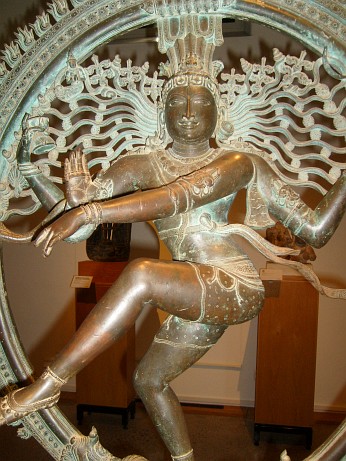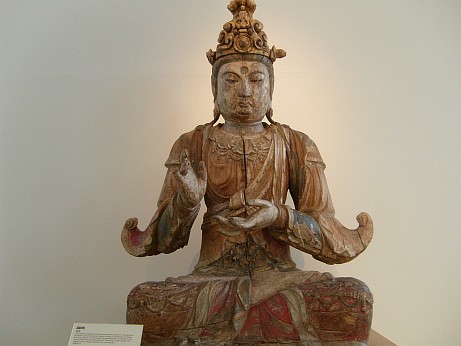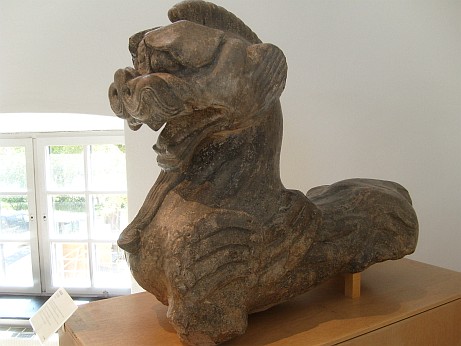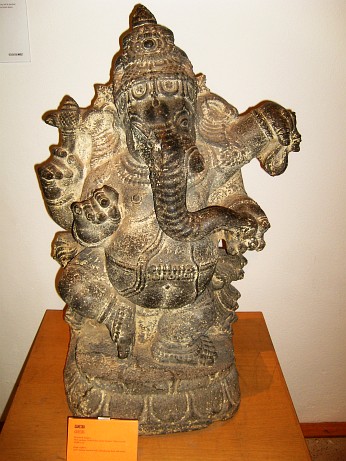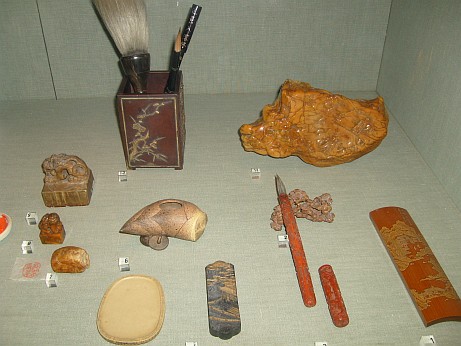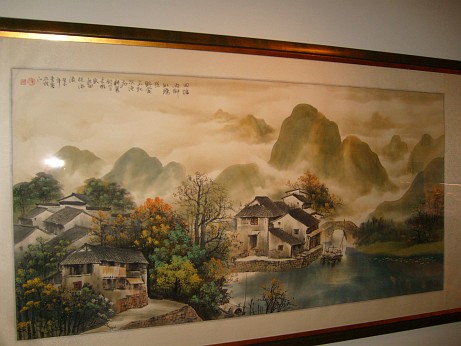Asia in Europe: MUSEUMS [in Stockholm]
Shiva Nataraja, “The Dancing Shiva”. Bronze sculpture. Southern India, ca 1400.
Shiva - Hindu sculpture
This is the god Shiva dancing his cosmic dance.
In Hinduism, Shiva is both creator, guardian and destroyer.
Shiva has a few special characteristics, for example, the third eye in his forehead. He stands with one foot on the daemon Apasmaradurusa, who symbolises ignorance. He holds a drum in his right hand, symbolising the rhythm of the cosmic dance.
This is the god Shiva dancing his cosmic dance.
In Hinduism, Shiva is both creator, guardian and destroyer.
Shiva has a few special characteristics, for example, the third eye in his forehead. He stands with one foot on the daemon Apasmaradurusa, who symbolises ignorance. He holds a drum in his right hand, symbolising the rhythm of the cosmic dance.
MOVIE
GUANYIN
2. Buddhist sculptures
The name Guanyin is short for Guanshi'yin (觀世音, pinyin: guānsh́ yīn, Wade-Giles: kuan-shih yin) which means "Observing the Sounds (or Cries) of the World".
The Buddha sits on a lotus throne in the characteristic meditation position (the lotus position).
He is dressed in a plain monk's dress. In Buddhist art the ritual positions of the hands are very significant.
The name Guanyin is short for Guanshi'yin (觀世音, pinyin: guānsh́ yīn, Wade-Giles: kuan-shih yin) which means "Observing the Sounds (or Cries) of the World".
The Buddha sits on a lotus throne in the characteristic meditation position (the lotus position).
He is dressed in a plain monk's dress. In Buddhist art the ritual positions of the hands are very significant.
GANESHA
Early 12th century
Ganesha is one of the best-known and most worshipped deities in the Hindu pantheon.
Ganesha is widely revered as the Remover of Obstacles and more generally as Lord of Beginnings and Lord of Obstacles (Vighnesha, Vighneshvara), patron of arts and sciences, and the deva of intellect and wisdom.
He is honoured at the start of rituals and ceremonies..
Ganesha is one of the best-known and most worshipped deities in the Hindu pantheon.
Ganesha is widely revered as the Remover of Obstacles and more generally as Lord of Beginnings and Lord of Obstacles (Vighnesha, Vighneshvara), patron of arts and sciences, and the deva of intellect and wisdom.
He is honoured at the start of rituals and ceremonies..
Gallery
http://www.youngdiplomats.zsei.info/photo/thumbnails.php?album=116
Movie
http://www.youtube.com/watch?v=EkiAlwi3FR0
http://www.youngdiplomats.zsei.info/photo/thumbnails.php?album=116
Movie
http://www.youtube.com/watch?v=EkiAlwi3FR0
